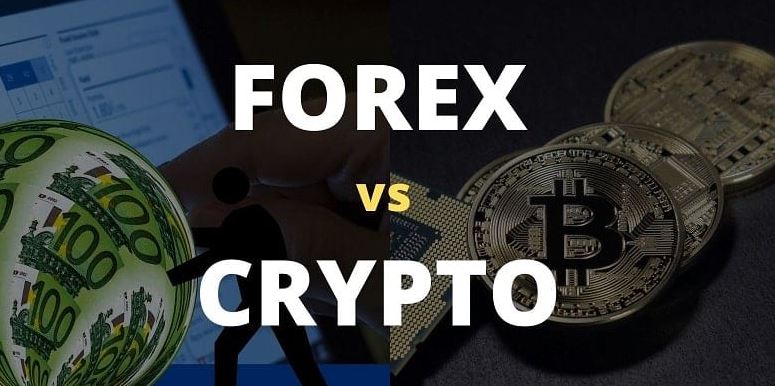The rapidly changing financial market has drawn investors worldwide to foreign exchange (Forex) and cryptocurrency trading, two intense rivals. Their similarities are worth comparing, but both are widely chosen by traders and offer potentially exciting trading opportunities despite their differences.
This article compares the worlds of forex trading and cryptocurrency trading, highlighting the main differences and weighing their benefits. How risky is forex trading compared to cryptocurrency trading? By reading on which of these may be best for your trading style, level of risk tolerance, and financial goals.

Tolerance for risk
Cryptocurrencies and Forex are both high-risk endeavors, but cryptocurrency trading is generally regarded as more risky due to their extreme volatility and lack of regulation. Traders should determine their level of risk tolerance before choosing a market that fits their risk profile.
Market awareness
Trading Forex requires an understanding of global politics and economics as well as an understanding of blockchain technology. While trading cryptocurrencies requires a detailed knowledge of blockchain technology and the digital currency market, trading cryptocurrencies involves understanding blockchain technology and the market for digital currencies.
Style of trading
A trader’s trading style should also be considered when choosing between the two markets since foreign exchange offers short-term and long-term trading opportunities. Still, cryptocurrency trading is typically associated with short-term, speculative trading.
Regulation
Trading in cryptocurrency is primarily unregulated while trading in Forex is heavily regulated. Therefore, traders should consider the regulatory framework when choosing a market.
Forex vs Crypto: Main differences
Despite the fundamental differences between cryptocurrencies and currencies, supply and demand still determine prices.
Forex trade involves buying and selling currency pairs on a constantly monitored market that is always open. In contrast, cryptocurrency trade involves buying and selling digital assets, such as tokens, coins, and non-fungible tokens.
Foreign currency is still recognized as legitimate worldwide, even though some countries have restrictions. Cryptocurrencies are, however, becoming increasingly popular as more countries and businesses accept them for financial and transactional transactions as they grow in popularity.

Market volume and transparency
With a daily trading volume of $7,5 trillion, the forex market is much smaller than the cryptocurrency market, with a market capitalization of about $1.48 trillion. Consequently, the forex market has a lower volatility and higher liquidity than the cryptocurrency market.
Trading times
Due to the forex market’s 24-hour availability, traders have many opportunities to trade. However, cryptocurrencies give traders even more flexibility as they are available 24 hours a day.
Unpredictability
Forex tends to be more stable than cryptocurrency markets due to extreme volatility. However, cryptocurrency markets can also be volatile, which can cause sudden and dramatic price changes.
Purchasing and selling options
In contrast, the crypto market limits traders’ trading options by concentrating mainly on cryptocurrency pairs. The forex market offers traders a variety of currencies to choose from, giving them many diversification options.
Which market is safer: crypto or Forex?
The forex market is heavily regulated by central banks, which provide supervision despite its decentralized nature and potential risks.
Keeping currencies undervalued or overpriced, central banks take action to prevent excessive fluctuations in their market values. This maintains some level of stability for their currency markets.
This level of regulation does not apply to the cryptocurrency market. Some cryptocurrency coins have limited liquidity, especially the more recent or obscure ones. The unregulated nature of the cryptocurrency market makes cryptocurrency trading particularly risky.


